
As a junior in college, I think I might have found my calling—for now anyway. For the past two and a half years I have been studying Art History, Museum Studies, and African American History at Duke University. I’ve committed myself to the intersection of art and activism through my passion for African American Art History. That’s involved two scholarly papers, one conference presentation, two student-curated exhibitions, three museum internships, and one budding senior thesis project. All these experiences are actively cultivating my knowledge base, and as I develop into a scholar and curator, I realize that my unique perspective as a “developing” professional holds its own value.
As museums evolve with their constituencies, there’s growing concern about how they will stay relevant and updated. Rooted in an archaic and elitist model of information and object display, museums have worked hard to develop themselves into institutions that reflect not only the past they’re displaying, but also the contemporary moment in which they’re displaying it. This sort of consciousness of the present manifests through greater integration of technology and engagement with contemporary topics, among other things. But one of the most interesting questions of museum evolution to me has been about the decolonization of these prized institutions.
Given my academic interest in African American Art History, and arts activism, I’ve pondered this topic from an array of angles. What’s most informed my current opinion has been my recent internship in New York City. As part of Duke University’s Duke in New York: Arts and Media program, I’ve had the opportunity to spend the semester in New York, with my time split between coursework and a curatorial internship. My internship was at a prestigious modern art museum in the city, and during my time as a curatorial intern, I’ve gleaned the usefulness of my perspective as a current art history student when it comes to the way museums are working to decolonize their collections.
The decolonization of museum collections requires a substantially different understanding of museum operations than the norm. As I’ve mentioned before, museums were founded as inherently elitist spaces for information sharing and conspicuous consumption. So to be a museum professional who has had extensive training under this traditional model of pedagogy influences the way you think of museums and how they should operate. This, matched with an art historical education founded on our Eurocentric and male-dominated canon, also influences the types of works included in these arts spaces. While museums have surely evolved since their eighteenth-century beginnings, an education that has failed to examine this history has informed a colonized museum collection and experience. But contemporary students are growing up in a different educational moment. With a greater appreciation for interdisciplinary thinking, the expansion of scholarly fields like race theory and queer theory, and the work of scholars that are affirming the applicability of these fields to curatorial methodology, curatorial activism is moving beyond just a vague ideal or approach—it is being intellectualized, validated, and implemented. With the efforts of curators like Trevor Schoonmaker and Marshall Price at the Nasher Museum of Art at Duke University, these activist strategies are moving from a niche priority to a seemingly mainstream one. Therefore, students learning the field during this moment are often receiving a less rigid art historical education that thinks beyond the conservative confines of the canon.
Skip over related stories to continue reading articleBut this change in education is just one part of what makes the “budding scholar” an important and fresh perspective—so too do the demographics of budding art historians. With recent funding initiatives by institutions like the Andrew W. Mellon Foundation and the Walton Family Foundation to diversify the museum field, there is growing diversity among “budding scholars.” This adds to the conversation about decolonization, since new scholars from underrepresented backgrounds will most certainly bring with them unique approaches to their work. Empowered by the scholarship they’re engaging with in the classroom, this growingly diverse group of students will now have the platform to pursue decolonization as it relates to art history, and explore their own culturally affirming interests related to decolonization.
Us “budding scholars,” given our academic backgrounds and diverse personal backgrounds, offer an insight that has yet to be jaded by experience within the industry. We haven’t found our perspectives restricted by the “rules” of academia or the museum world. Our questions are profound, our perspectives are unique, and as a more socially conscious generation in general, we more commonly have activist intentions. This combination is producing a cohort of young people who are not only interested in decolonizing museum collections, but have valuable insight into how it can be done.
I’ve had an incredible experience this past fall in New York, given the way that my museum valued my perspective. They asked my opinion of the work they were doing and valued my voice. I’m not sure if this was unique to me specifically, or to my institution, but it offered to me a model for how museums can engage their interns to better their institutions.
If museums were to implement platforms that allowed interns to share their ideas on decolonization, and to create structures that not only listened to their opinions but valued them, interns and museums could create a reciprocal learning relationship. While good work is certainly already happening among museum professionals, this relationship with interns would offer a pipeline for the diverse thought that museums staffs desperately need. This platform could look like standardized proposal projects—where interns could create mock exhibition and/or acquisition proposals that worked towards decolonizing the museum’s collection. And if well-executed and feasible enough, these projects could be implemented in a future exhibition cycle or acquisition season, or even merged with an already-existing project or initiative. This platform could also look like focus groups that ask interns their thoughts about the museum’s current collection and displays, and ideas they have about progress.
This idea could raise ethical concerns, given that it might imply relying on unpaid or low-paid interns to serve as minority voices. It would be important to consider the value of this labor and to make sure that it was compensated appropriately.
Ultimately, these sorts of projects or lines of communication would not only offer these “budding scholars” an incredible opportunity for professional development, but they would also provide museums with critical information and perspectives that might not already exist within their offices.
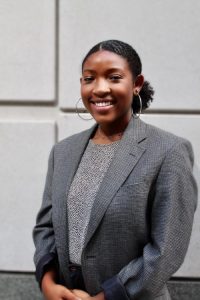 Ashleigh Smith is a college junior at Duke University and a Mellon Mays Undergraduate Fellow. Passionate about equity and activism, Ashleigh intends to pursue academia and curatorial work to highlight stories and create curatorial strategies that help make the (art) world a more diverse and equitable place.
Ashleigh Smith is a college junior at Duke University and a Mellon Mays Undergraduate Fellow. Passionate about equity and activism, Ashleigh intends to pursue academia and curatorial work to highlight stories and create curatorial strategies that help make the (art) world a more diverse and equitable place.
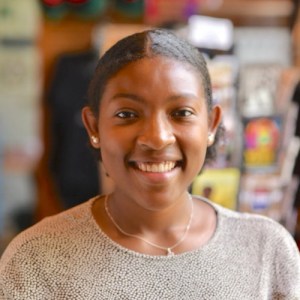



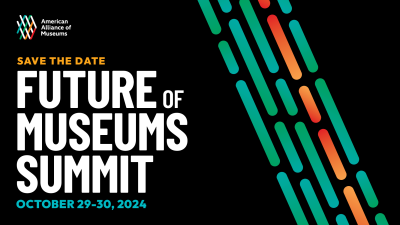
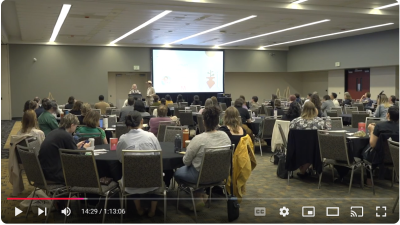

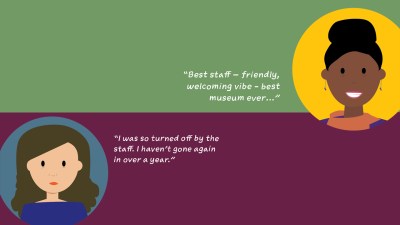
Dear Asleigh,
good text. You may find some interesting general arguments at
http://www.thebestinheritage.com
and
http://www.mnemosophy.com
Only correctly conceived profession will be able to respond to the challenges you indicate.
Best,
T. Sola
Awesome!